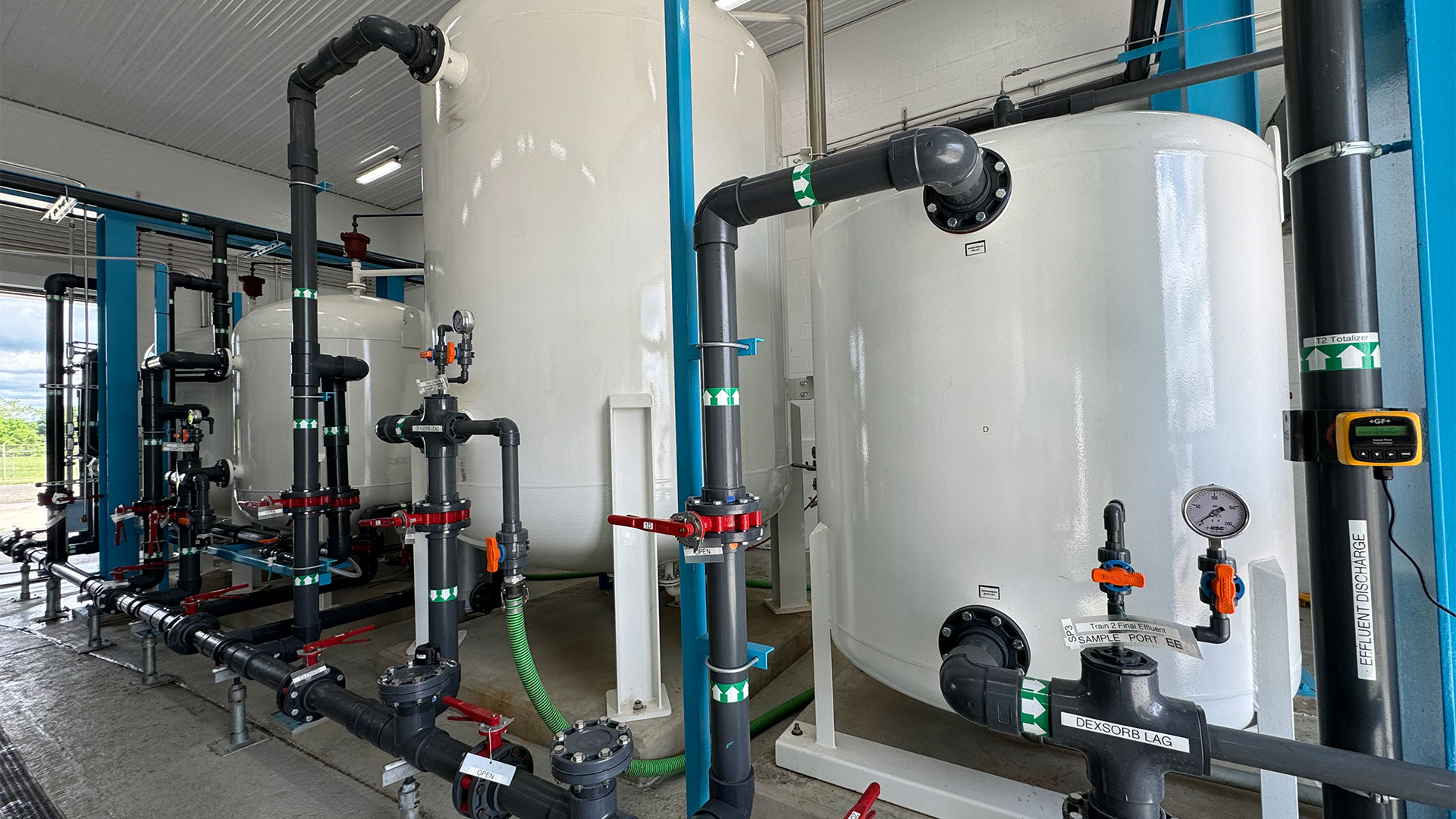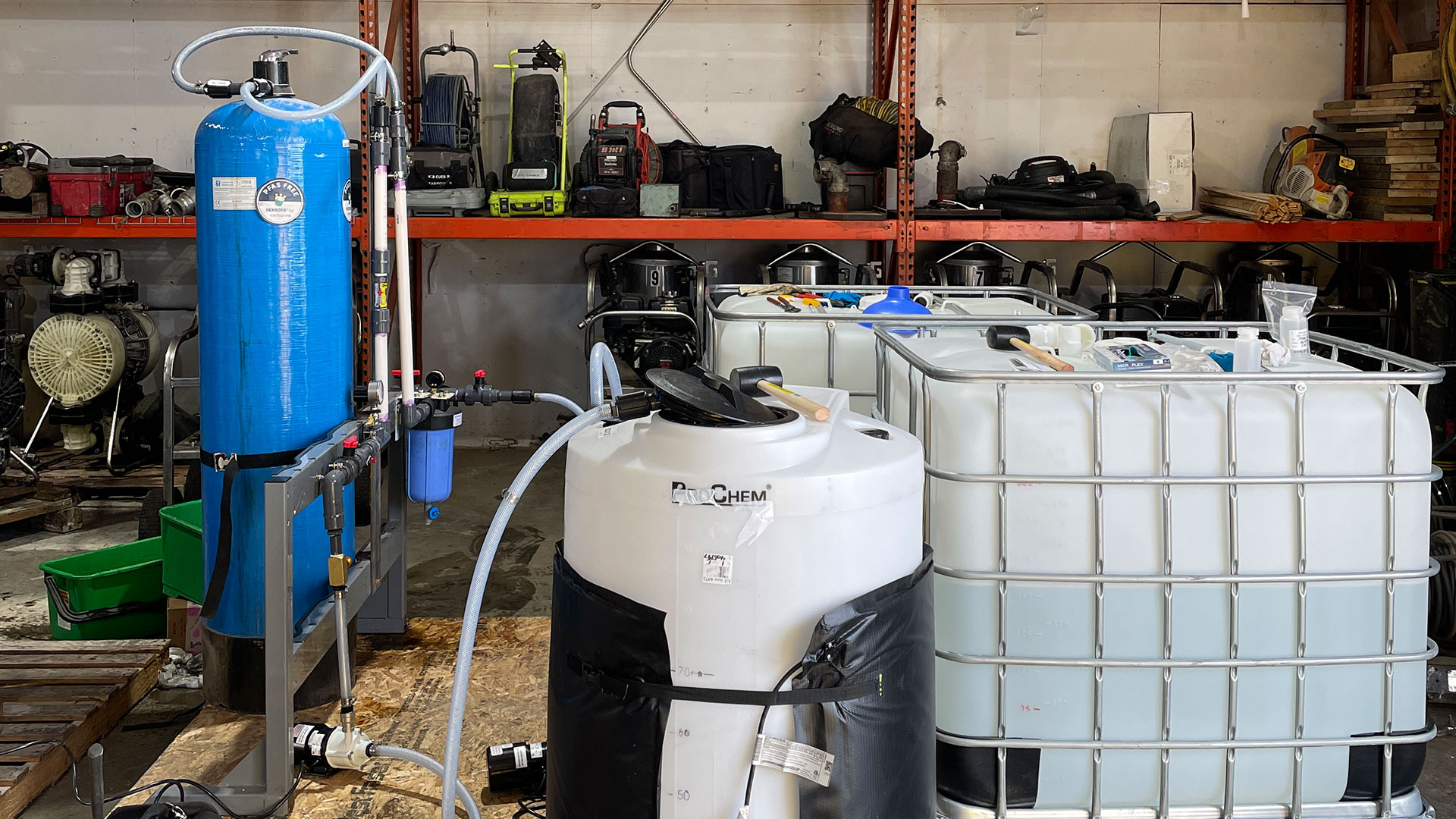DEXSORB®
Welcome to the future of water treatment.

dexsorb®
QUICK FACTS


DEXSORB Promotes PFAS Waste Management
What is Dexsorb?
DEXSORB is a plant-based adsorbent made with beta-cyclodextrins, available in powder or granule form. It was developed to remove PFAS and other organic micropollutants from water supplies. The media utilizes molecular selectivity to target PFAS with rapid, high-capacity adsorption.
What is beta-cyclodextrin?
Beta-cyclodextrins are natural macrocyclic rings of glucose subunits, which are renewably produced from starch. Beta-cyclodextrin has a conical shape with a hydrophobic cavity (0.78 nm) and a hydrophilic exterior.
What is the adsorption mechanism of DEXSORB for PFAS?
DEXSORB removes PFAS from contaminated water through the hydrophobic interaction between PFAS and cyclodextrin cavities.
The uniform 0.78 nm cavities provide molecule-level selectivity for PFAS and organic micropollutants. This provides short empty bed contact time (EBCT), small infrastructure, and low media volume.
What water environments can DEXSORB be applied to?
With molecular selectivity for PFAS, DEXSORB performs equally well in diverse water environments for the removal of PFAS, including drinking water, groundwater, surface water, wastewater, and landfill leachate.
Is DEXSORB certified for water treatment?
DEXSORB is certified by NSF International under NSF/ANSI 61 as a safe process media for drinking water treatment. There is no leaching of any harmful chemicals from DEXSORB during the water treatment process.
Will the performance of DEXSORB be impacted by water quality?
Compared to granular activated carbon (GAC) and ion exchange resins (IXR), DEXSORB performance is not impacted by matrix effects of natural organic matter (NOM), fat, oil and grease (FOG), or inorganic ions. DEXSORB filtration systems provide more favorable hydraulic operations, free from biofouling.
Besides PFAS, does DEXSORB removal other contaminants?
DEXSORB is effective for the treatment of other organic micropollutants in the 150 to 1000 Dalton range including pesticides, pharmaceuticals, and industrial chemicals. DEXSORB does not remove inorganic ions (e.g., metals, chloride, sulfate, fluoride, etc.).
How stable is DEXSORB in water treatment applications?
DEXSORB has superior biological and physicochemical stability. It can be applied in challenging environments, and is not affected by aerobic or anaerobic biological activities, residual disinfectants such as free chlorine, varying pH, and hardness.
What is the life cycle of DEXSORB?
DEXSORB offers a sustainable solution, as the media can be regenerated for several cycles of reuse. Regeneration is accomplished in a solution-based desorption process performed under ambient conditions to separate PFAS waste and fully restore DEXSORB media capacity.
How is the DEXSORB waste handled?
A beneficial output of regeneration is that extracted PFAS are isolated and further processed into a concentrated waste stream for efficient handling and disposal by existing destruction technologies. This avoids disposal complications encountered by single-use media and prevents captured PFAS from recontaminating the environment.


